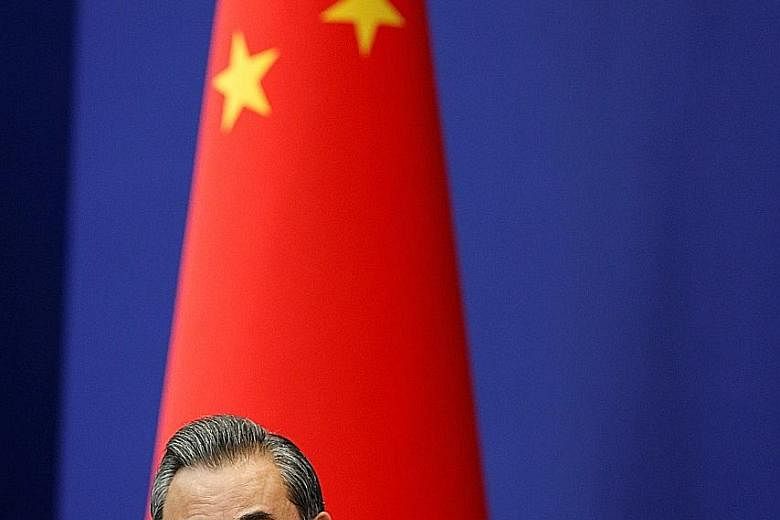BEIJING/NEW DELHI • China said yesterday it hopes India will "learn lessons" following the end of a months-long military stand-off in a strategically important disputed area in the Himalayas.
The two nations resolved the deadlock over the Doklam area claimed by both China and Bhutan, just days before Indian Prime Minister Narendra Modi is expected to attend a Brics summit in China.
"Of course we hope the Indian side will learn lessons from this incident and prevent similar things from happening again," Foreign Minister Wang Yi told a news briefing on the upcoming Brics summit, which includes both nations as well as Brazil, Russia and South Africa.
The stand-off began on June 16 and sparked what some analysts said was the worst crisis in decades between the nuclear-armed neighbours.
Hundreds of troops were deployed on the Doklam plateau, known as Donglang in China, after India objected to China building a road through the mountainous area.
India does not claim Doklam for itself but is closely allied with Bhutan, which it regards as a buffer against rival China to the north.
Mr Wang also said it was normal for the two neighbours to have differences. "What's important is we put these problems in the appropriate place, and appropriately handle and control them in the spirit of mutual respect and based on the consensus of both countries' leaders," he said.
"There is huge potential for cooperation between China and India," Mr Wang added, without giving details.
Chinese President Xi Jinping and Mr Modi are expected to hold talks on the summit sidelines in the south-eastern city of Xiamen, officials in New Delhi said.
That has raised hopes they will try and repair a relationship that has deteriorated as the two countries find their interests diverge - and often clash - while competing for influence across Asia.
Neither side should claim victory after the stand-off, said former Indian foreign secretary Nirupama Rao, an expert on ties with China.
"The forthcoming summit can provide an opportunity to begin that restoration process when the leaders of the two countries meet," Mr Rao said.
"Diplomatic and not military manoeuvres must be the name of the game in this relationship," he added.
Mr Mao Siwei, China's former consul-general in India's eastern city of Kolkata, also said the peaceful end to the stand-off was a positive sign.
This is a case of "top leaders from both countries withstanding extreme domestic nationalist sentiment to come to a sensible decision", Mr Mao added.
AGENCE FRANCE-PRESSE, REUTERS

